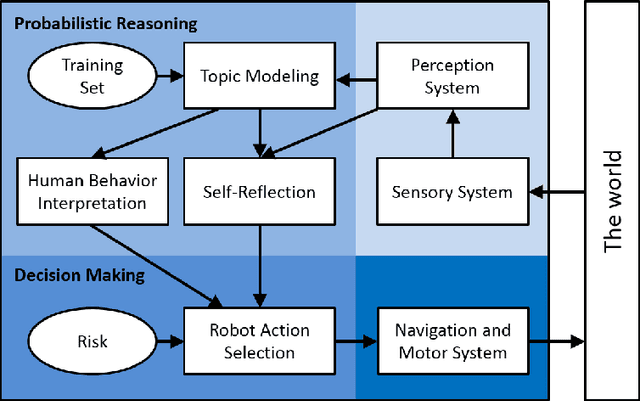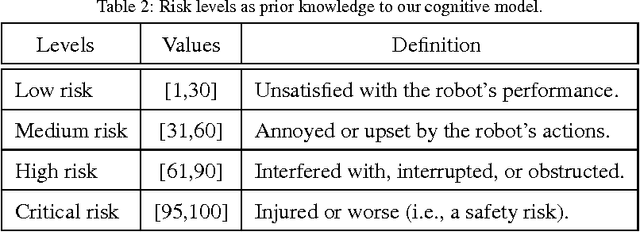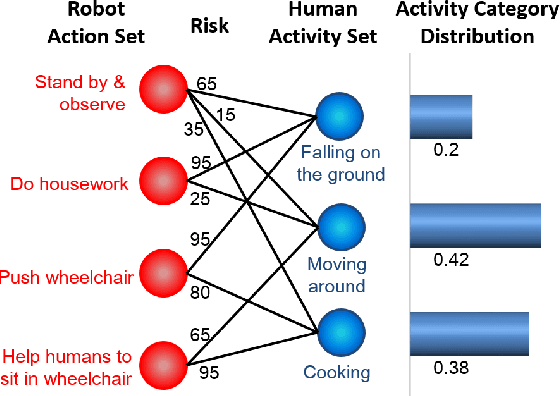Self-Reflective Risk-Aware Artificial Cognitive Modeling for Robot Response to Human Behaviors
Paper and Code
May 16, 2016



In order for cooperative robots ("co-robots") to respond to human behaviors accurately and efficiently in human-robot collaboration, interpretation of human actions, awareness of new situations, and appropriate decision making are all crucial abilities for co-robots. For this purpose, the human behaviors should be interpreted by co-robots in the same manner as human peers. To address this issue, a novel interpretability indicator is introduced so that robot actions are appropriate to the current human behaviors. In addition, the complete consideration of all potential situations of a robot's environment is nearly impossible in real-world applications, making it difficult for the co-robot to act appropriately and safely in new scenarios. This is true even when the pretrained model is highly accurate in a known situation. For effective and safe teaming with humans, we introduce a new generalizability indicator that allows a co-robot to self-reflect and reason about when an observation falls outside the co-robot's learned model. Based on topic modeling and two novel indicators, we propose a new Self-reflective Risk-aware Artificial Cognitive (SRAC) model. The co-robots are able to consider action risks and identify new situations so that better decisions can be made. Experiments both using real-world datasets and on physical robots suggest that our SRAC model significantly outperforms the traditional methodology and enables better decision making in response to human activities.
 Add to Chrome
Add to Chrome Add to Firefox
Add to Firefox Add to Edge
Add to Edge